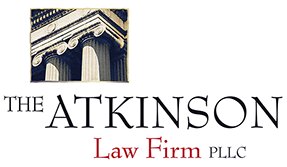Best Animal & Dog Injury Lawyers in North Carolina
Share your needs with us, get contacted by law firms.
Free. Takes 2 min.
Or refine your search by selecting a city:
List of the best lawyers in North Carolina, United States
About Animal & Dog Injury Law in North Carolina, United States
Animal and dog injury law in North Carolina covers incidents where a person is bitten, attacked, or injured by a dog or other animal. These cases typically involve issues of owner responsibility, victim rights, and possible compensation for injuries. North Carolina law encompasses both civil and, in some cases, criminal liability for animal owners. Understanding your rights and potential responsibilities under these laws is crucial if you have been involved in an animal-related injury incident.
Why You May Need a Lawyer
Legal assistance may be needed in many animal and dog injury situations. Some common examples include:
- If you or your child has suffered injuries from a dog bite or animal attack and want to seek compensation for medical bills, lost wages, or pain and suffering.
- If you are an animal owner whose dog has bitten someone and you face possible civil lawsuits or criminal charges.
- If there is a dispute over whether the animal was provoked, restrained, or dangerous by legal definition.
- If the insurance company is refusing to pay or is offering a low settlement for your claim related to an animal injury.
- If the incident involved a neighbor, family member, or someone you know, and you want guidance on how to proceed sensitively.
- If local ordinances or state laws are complex and you are unsure about your legal obligations or defenses.
A lawyer can help investigate the facts, negotiate with insurance companies, guide you through North Carolina’s legal standards, and represent you in court if necessary.
Local Laws Overview
In North Carolina, animal and dog injury laws are governed by state statutes as well as local county and municipal ordinances. Here are some key aspects:
- Strict Liability with Exceptions - North Carolina generally follows a "one bite" rule, which means the owner may not be automatically liable for the first bite or attack unless they knew, or should have known, that their animal was dangerous.
- Dangerous Dog Law - Dogs that have previously bitten someone, killed or injured a domestic animal, or have been classified as dangerous by authorities are subject to stricter regulations. Owners can be criminally and civilly liable for attacks by such dogs.
- Negligence - Even if the dog was not previously declared dangerous, owners may still be held liable if they were negligent, such as letting the animal run loose in violation of leash laws.
- Provocation and Trespassing - If the injured person was provoking the animal or trespassing at the time of the incident, recovery may be limited or denied.
- Rabies and Reporting - North Carolina law requires any dog bite to be reported to the local health department, especially due to rabies concerns.
- Statute of Limitations - Claims for personal injuries, including animal and dog injuries, must generally be filed within three years of the incident.
Local city and county ordinances may impose additional leash, restraint, and registration requirements, so it’s essential to check the rules in your area.
Frequently Asked Questions
What should I do immediately after being bitten or injured by a dog?
Seek medical attention first, then report the incident to your local animal control or health department. Take photos of injuries and gather witness information if possible.
Is the dog owner always responsible for injuries their dog causes?
North Carolina does not always hold owners automatically liable after a first bite unless the dog was already considered dangerous or the owner was negligent in controlling their animal.
What is the "one bite rule" in North Carolina?
The "one bite rule" means owners are not typically liable the first time their dog bites unless they had reason to know the dog might be dangerous, such as previous aggressive behavior.
Can I still recover damages if I was partially at fault?
North Carolina follows a strict contributory negligence rule. If you were even slightly at fault, such as by provoking the animal, you may be barred from recovering damages.
What happens to the dog after an attack?
The dog may be quarantined to check for rabies and, if determined to be dangerous, may face restrictions or removal at the discretion of local authorities.
How long do I have to file a lawsuit after an animal injury?
Generally, you must file a lawsuit within three years of the date of the injury in North Carolina.
Are there criminal penalties for dog owners after an attack?
Yes, if a dog is classified as "dangerous" and causes injury, the owner may face misdemeanor or felony criminal charges depending on the circumstances.
Does homeowner's insurance cover dog bites?
Many homeowner insurance policies cover liability for dog bites, but some exclude certain breeds or incidents, so it is important to check your policy and consult an attorney if you are unsure.
Can I sue for emotional distress after a dog attack?
You may be able to recover damages for emotional distress in addition to physical injuries, especially if the attack was particularly traumatic.
What if I was bitten while working, such as delivering mail?
If you were acting within the scope of your employment, you may be eligible for worker’s compensation benefits in addition to or instead of filing a claim against the dog owner.
Additional Resources
If you need more information or assistance with an animal and dog injury matter, consider reaching out to the following:
- North Carolina Department of Health and Human Services - Animal Control Program
- Your local county or city animal control office
- North Carolina Bar Association - Lawyer Referral Service
- North Carolina Animal Rabies Control Program
- Local hospitals and public health departments for bite reporting
- Veterinary offices for questions about animal vaccination and behavior
Next Steps
If you have experienced an animal or dog injury, or your pet has injured someone else, it is important to take prompt action:
- Seek medical care right away for any injuries
- Report the incident to your local animal control or health department
- Collect and preserve evidence such as photos, medical records, and witness information
- Contact your insurance company if you are a pet owner or injured party
- Consult with a legal professional experienced in North Carolina animal and dog injury law to discuss your rights and options
A lawyer can provide personalized guidance tailored to the facts of your case and help you navigate the complex legal and insurance processes that often follow animal injury incidents.
Lawzana helps you find the best lawyers and law firms in North Carolina through a curated and pre-screened list of qualified legal professionals. Our platform offers rankings and detailed profiles of attorneys and law firms, allowing you to compare based on practice areas, including Animal & Dog Injury, experience, and client feedback.
Each profile includes a description of the firm's areas of practice, client reviews, team members and partners, year of establishment, spoken languages, office locations, contact information, social media presence, and any published articles or resources. Most firms on our platform speak English and are experienced in both local and international legal matters.
Get a quote from top-rated law firms in North Carolina, United States — quickly, securely, and without unnecessary hassle.
Disclaimer:
The information provided on this page is for general informational purposes only and does not constitute legal advice. While we strive to ensure the accuracy and relevance of the content, legal information may change over time, and interpretations of the law can vary. You should always consult with a qualified legal professional for advice specific to your situation.
We disclaim all liability for actions taken or not taken based on the content of this page. If you believe any information is incorrect or outdated, please contact us, and we will review and update it where appropriate.
Browse animal & dog injury law firms by city in North Carolina
Refine your search by selecting a city.
















